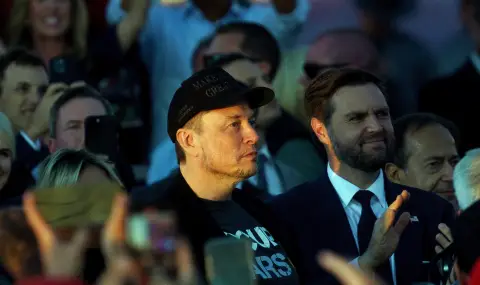At first glance it seems harmless - whoever registers can win a premium. A similar principle is applied very often, for example in online marketing. But in the latest proposals for such a premium, which Elon Musk is making to American voters, there are several catches.
What's the problem with Musk's offer?
The premium is extremely high - until the day of the American presidential elections, the richest man in the world intends to give away one million dollars every day. Or more precisely - to give them away in a lottery. Since July, Musk has already provided $75 million to Donald Trump's campaign. Over the weekend, he personally handed out the first two lottery checks to lucky winners at campaign events in two cities in Pennsylvania - one of the key swing states.
Secondly, it is not about an ordinary survey, but about expressing a political opinion - upon registration, not only an email address must be provided, but also a political petition must be signed. It declared support for the First and Second Amendments to the US Constitution, which guarantee the right to free speech and the right to bear arms. There is nothing wrong with this in principle, but in the current political situation in the United States, the second amendment is increasingly being exploited by radicals who are against initiatives to tighten gun laws.
Most problematic, however, is the third point of Musk's lottery: To participate in it, people must be registered voters for the presidential election and live in one of the following seven states - Arizona, Georgia, Michigan, Nevada, North Carolina, Pennsylvania or Wisconsin. These are the so-called wavering states in which the results are so far completely unpredictable. That's where it will be decided who wins the election, so both Republicans and Democrats are making huge efforts to win over voters there.
In Pennsylvania, Musk also plans to give $100 to every registered voter who signs the petition. And in all seven swing states, it will pay $47 for each additional signature secured.
Is Musk's Lottery Illegal?
The topic is the subject of discussions among American lawyers. UCLA law professor Rick Hayson wrote a blog post in which he said Musk was "unequivocally and illegally buying votes." Hayson was referring to legislation that provides for fines or up to five years in prison for people who offer or accept an election-related payment. Hayson also cited a Department of Justice handbook that says creating "opportunities for profit" are a way to illegally influence elections.
According to lawyer Brender Fischer, if everyone was eligible to win, it probably wouldn't be a problem, but "tying payments to electoral rolls probably violates the law." Pennsylvania Governor Josh Shapiro, a Democrat, has publicly called for an investigation.
The America PAC lobbying organization is officially behind Musk's lottery. PAC is a common US abbreviation for Political Action Committee. There are many such committees that represent various interests and usually support certain Republican or Democratic candidates. And while the US has limits on donations to candidates and parties, PACs can run their own ad campaigns without limit.
Voter data collection helps Trump
The question remains what happens to the data that must be provided to participate in the lottery. In the US, voter data is a very valuable resource - with the help of addresses, age characteristics and other demographic information, election strategists prepare detailed plans in which district and to which target group to direct messages.
Groups of people considered to be committed voters receive appeals for donations. In this way, the petition can help the Trump camp to gather valuable information about voters in the seven swing states.
